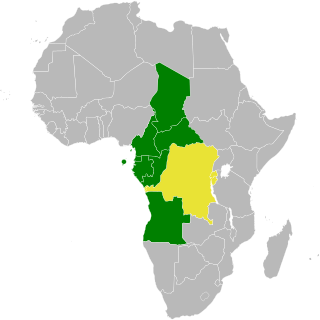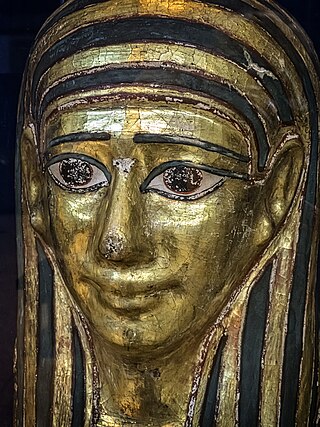The small arms trade is the markets of both authorized and illicit small arms and light weapons (SALW), as well as their parts, accessories, and ammunition.
Archaeological ethics refers to the moral issues raised through the study of the material past. It is a branch of the philosophy of archaeology. This article will touch on human remains, the preservation and laws protecting remains and cultural items, issues around the globe, as well as preservation and ethnoarchaeology.

The Convention on the Protection and Promotion of the Diversity of Cultural Expressions is an international treaty adopted in October 2005 in Paris during the 33rd session of the General Conference of the United Nations Educational, Scientific and Cultural Organization (UNESCO). In response to the fears that globalization would lead to an increasingly uniform global culture, it allows states to protect cultural diversity by promoting and defending their own cultural industries. It also establishes international co-operation to help protect the cultural industries of developing countries, including the creation of the International Fund for Cultural Diversity. It reaffirms many of the principles of the 2001 UNESCO Universal Declaration on Cultural Diversity but, unlike that declaration, it is legally binding and requires legal ratification by member states. The convention is the first international treaty to give cultural goods a special status, having cultural as well as economic value.
Cultural exception is a political concept introduced by France in General Agreement on Tariffs and Trade (GATT) negotiations in 1993 to treat culture differently from other commercial products. In other words, its purpose is to consider cultural goods and services as exceptions in international treaties and agreements especially with the World Trade Organization (WTO). Its goals are to point out that States are sovereign as far as limitation of culture free trade is concerned in order to protect and promote their artists and other elements of their culture. Concretely, it can be seen through protectionist measures limiting the diffusion of foreign artistic work (quotas) or through subsidies distributed according to the country's cultural policy.
American Council for Cultural Policy (ACCP) was a not-for-profit organization formed in 2002 by a group of politically influential antiquities dealers, collectors and lawyers in the United States, with its headquarters in New York and representatives in Washington D.C. The goal of the organization was described by Ashton Hawkins as "informing the public on arts issues." The organization is now defunct and its website (culturalpolicycouncil.org) has been removed from the web. Some of its members now actively take part in Cultural Policy Research Institute.

The World Heritage Committee is a committee of the United Nations Educational, Scientific and Cultural Organization that selects the sites to be listed as UNESCO World Heritage Sites, including the World Heritage List and the List of World Heritage in Danger, defines the use of the World Heritage Fund and allocates financial assistance upon requests from States Parties. It comprises representatives from 21 state parties that are elected by the General Assembly of States Parties for a four-year term. These parties vote on decisions and proposals related to the World Heritage Convention and World Heritage List.
The antiquities trade is the exchange of antiquities and archaeological artifacts from around the world. This trade may be illicit or completely legal. The legal antiquities trade abides by national regulations, allowing for extraction of artifacts for scientific study whilst maintaining archaeological and anthropological context. The illicit antiquities trade involves non-scientific extraction that ignores the archaeological and anthropological context from the artifacts.
Since 2008 copyright in Afghanistan has been governed by the law on the support the right of authors, composers, artists and researchers.

The Arms Trade Treaty (ATT) is a multilateral treaty that regulates the international trade in conventional weapons.

The Carabinieri Command for the Protection of Cultural Heritage, better known as the Carabinieri T.P.C., is the branch of the Italian Carabinieri responsible for combatting art and antiquities crimes and is viewed as an experienced and efficient task force.

The Central African Convention for the Control of Small Arms and Light Weapons, their Ammunition and all Parts and Components that can be used for their Manufacture, Repair and Assembly, also known as the Kinshasa Convention, aims at regulating small arms and light weapons (SALW) and combating their illicit trade and trafficking in Central Africa.

UNIDROIT Convention on Stolen or Illegally Exported Cultural Objects is the international treaty on the subject of cultural property protection. It attempts to strengthen the main weaknesses of the 1970 UNESCO Convention on the Means of Prohibiting and Preventing the Illicit Import, Export and Transfer of Ownership of Cultural Property. The UNIDROIT Convention seeks to fight the illicit trafficking of cultural property by modifying the buyer's behaviour, obliging him/her to check the legitimacy of their purchase.

The UNESCO 1970 Convention on the Means of Prohibiting and Preventing the Illicit Import, Export and Transfer of Ownership of Cultural Property is an international treaty to combat the illegal trade in cultural items. It was signed on 14 November 1970 and came into effect on 24 April 1972. As of February 2024, 143 states have ratified the convention.
The Canadian Commission for UNESCO (CCUNESCO), administered by the Canada Council for the Arts, is Canada's national commission for UNESCO, actively advancing the organization's mandate to contribute to peace based on the intellectual and moral solidarity of humankind by promoting cooperation among nations.
The Cultural Heritage Center of the American Bureau of Educational and Cultural Affairs specializes in the protection and preservation of the world's ancient and historic monuments and archeological sites.
"Found in collection" (FIC) is a term used by a museum to refer to "undocumented objects that remain without status after all attempts to reconcile them to existing records of permanent collection and loan objects are completed". Despite the best efforts of museum staff, museums often have FIC items. This term was developed so that collections with incomplete provenance would be handled ethically and with transparency. Depending on the paperwork and information accompanying the material, the museum has several choices in how to proceed.

"The Spoils of War—World War II and Its Aftermath: The Loss, Reappearance, and Recovery of Cultural Property" was an international symposium held in New York City in 1995 to discuss the artworks, cultural property, and historic sites damaged, lost, and plundered as a result of World War II. The three-day event was sponsored by the Bard Graduate Center for Studies in the Decorative Arts to commemorate the 50th anniversary of the end of the war. The conference was organized by Elizabeth Simpson, an archaeologist and professor at the Bard Graduate Center.

The Protect and Preserve International Cultural Property ActH.R. 1493 is a United States Act of Congress that became law in 2016.

The Convention on Cultural Property Implementation Act is a United States Act of Congress that became federal law in 1983. The CCPIA implemented the 1970 UNESCO Convention on the Means of Prohibiting and Preventing the Illicit Import, Export and Transfer of Ownership of Cultural Property. It restricts the importation of some archaeological and ethnological materials into the United States from other State Parties to the Convention.

The Pennsylvania Declaration was a statement of ethics issued by the University of Pennsylvania Museum of Archaeology and Anthropology on April 1, 1970. It affirmed that the Penn Museum would no longer acquire objects that lacked provenance or collection histories. The declaration aimed to distinguish the Penn Museum's collection practices from illegal antiquity trading while maintaining trust with countries where the university engaged in field research. This declaration marked the first time that a museum had taken formal steps to guarantee the ethical acquisition of materials and to deter looting and illicit antiquities trading. Froelich Rainey, director of the Penn Museum, presented the declaration at the meeting of the United Nations Educational, Scientific, and Cultural Organization (UNESCO), in conjunction with the issue of its treaty known as the 1970 Convention on the Means of Prohibiting and Preventing the Illicit Import, Export and Transfer of Ownership of Cultural Property.










